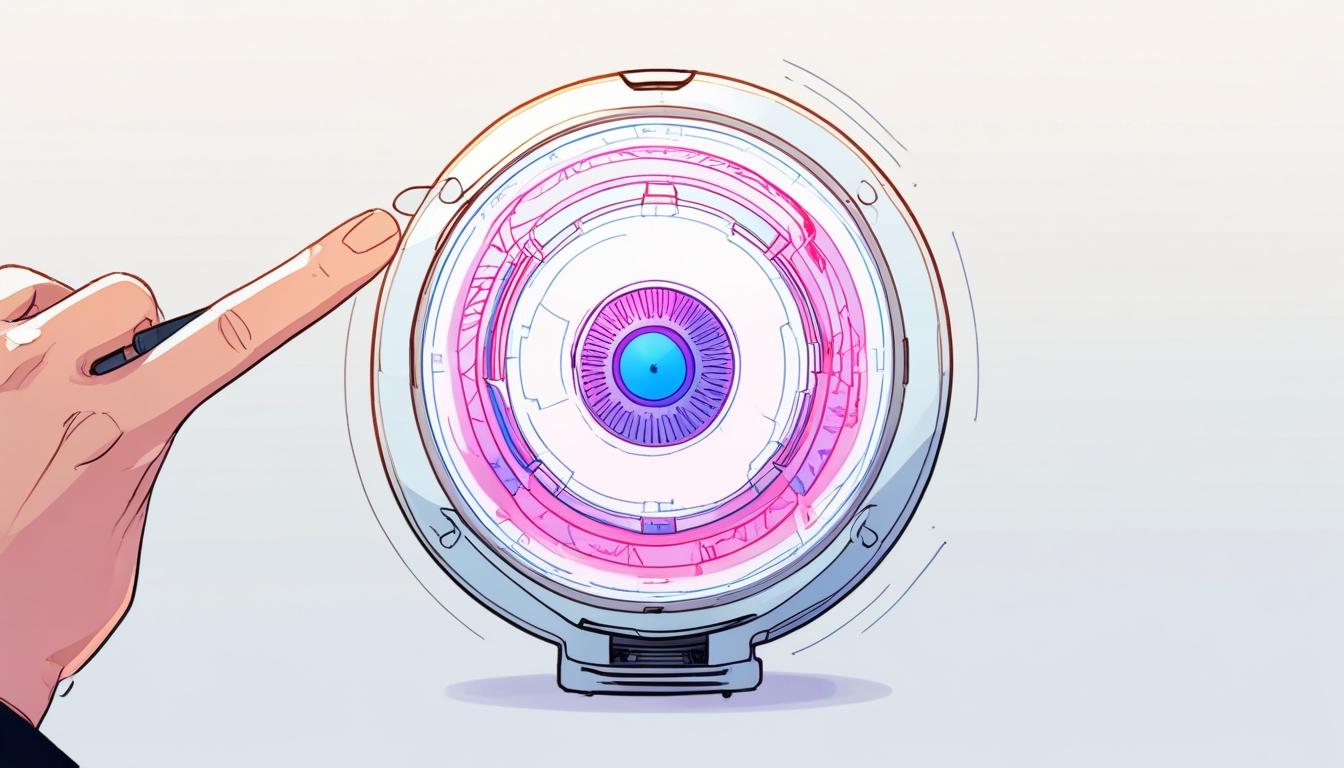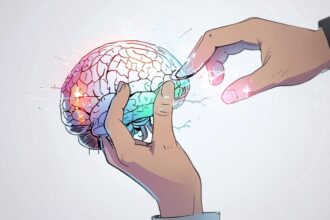Sam Altman’s Worldcoin, incorporating iris-scanning biometric verification and a cryptocurrency token, has entered the US market as regulatory attitudes soften and AI-driven identity verification demands rise. The expansion signals a new phase for digital identity amid ongoing global scrutiny.
Sam Altman’s digital identity initiative, Worldcoin, has officially launched in the United States, marking a significant expansion of the project’s availability. This development brings the company’s iris-scanning technology and cryptocurrency token to the US market, coinciding with former President Donald Trump’s administration’s growing openness to the digital asset sector.
Worldcoin, initially launched outside the US in 2023, had deliberately delayed its entry into the American market due to regulatory concerns and the then less favourable stance of the Biden administration towards cryptocurrencies. Altman, who is also CEO of the artificial intelligence giant OpenAI, previously expressed frustration at having to exclude the US, saying the venture would be “World minus the US coin.” In contrast, Donald Trump has advocated making the United States the “crypto capital of the planet,” signalling a shift in policy tone.
Adrian Ludwig, chief architect at Tools for Humanity—the primary developer behind Worldcoin—explained, “There were very good reasons why we focused on making sure that the product worked in the entire world before coming to the United States. Some of them are related to regulatory changes.” Tools for Humanity, founded by Altman and Alex Blania in 2019, has raised approximately $200 million from notable venture capital firms including Andreessen Horowitz, Khosla Ventures, and investors such as LinkedIn co-founder Reid Hoffman. The funding roster also included Sam Bankman-Fried, the founder of FTX, who was sentenced to 25 years in prison last year for fraud.
The core of Worldcoin’s technology is a biometric system that relies on specialised eyeball-scanning devices, called “orbs,” about the size of basketballs, which generate unique digital IDs from users’ iris patterns. These IDs enable users to access the Worldcoin cryptocurrency token. The company is developing smaller, handheld versions of the orbs and aims to integrate this biometric authentication technology into web cameras and mobile devices in the future.
Worldcoin plans to ramp up production significantly in the US, aiming to build roughly 10,000 orbs within the next year—about five times the current global supply. A new factory is being established in Richardson, Texas, to facilitate this expansion, according to Ludwig.
The launch coincides with advances in artificial intelligence that have increased the need for reliable methods to distinguish between humans and AI-generated content online. The rise of sophisticated AI models capable of mimicking human interaction has introduced new challenges, such as fraud, phishing, and online impersonation. Ludwig highlighted this context when announcing a partnership between Worldcoin and Match Group, which operates dating apps including Tinder. The technology will be used to verify users, enhancing authenticity on those platforms.
Ludwig also noted that the technology could find applications across government and community services. He mentioned that it might improve trust and safety on social networks, referencing OpenAI’s reported plans to develop a social network in the future. He acknowledged the potential for Worldcoin’s biometric verification to be adopted by competitors such as Elon Musk’s X platform or Meta.
Despite its technological promise, Worldcoin has encountered resistance and regulatory scrutiny in several countries. Spain’s data protection authority blocked the company last year, raising concerns about the collection of personal data from minors. The company has also faced bans, investigations, or fines in Portugal, Hong Kong, South Korea, and France.
Ludwig reassured that the biometric data collected is kept anonymous and emphasised the company’s commitment to privacy. He projected that within approximately 18 months, the operating costs of the Worldcoin network would begin to be offset by fees generated through its ecosystem.
The Financial Times is reporting on these developments, noting the complex regulatory and technological landscape navigated by Worldcoin as it seeks to integrate biometric identity verification with cryptocurrency and AI-driven applications in the US and beyond.
Source: Noah Wire Services
- https://www.ft.com/content/0c5c2b8d-b185-40b6-9221-b80ee130b92e – This article reports on Worldcoin’s official launch in the United States, highlighting the introduction of its iris-scanning technology and cryptocurrency token to the U.S. market.
- https://www.axios.com/2025/05/01/sam-altman-world-biometric-us-rollout – This piece discusses Worldcoin’s expansion into the U.S. market, detailing the deployment of its Orb biometric scanners in various cities and the company’s rebranding efforts.
- https://www.huffingtonpost.es/tecnologia/regresa-empresa-te-daba-dinero-iris-quiere-pasaporte.html – This article covers Worldcoin’s rebranding to World Network and its focus on creating a network of verified individuals to promote a human-centered AI future, including the introduction of new Orb devices.
- https://www.biometricupdate.com/202110/worldcoin-iris-biometrics-cryptocurrency-project-launched-by-sam-altman – This report details the launch of Worldcoin, emphasizing its use of iris biometric devices to verify individuals and the company’s valuation reaching $1 billion after substantial investments.
- https://www.newsbytesapp.com/news/business/sam-altman-s-worldcoin-crypto-project-goes-live/story – This article explains how Worldcoin operates, including the iris scanning process and the issuance of cryptocurrency tokens to users, as well as the company’s expansion plans.
- https://www.newsweek.com/sam-altman-worldcoin-crypto-ai-1920214 – This piece provides an overview of Worldcoin, describing its blockchain-based eyeball-scanning initiative and the issuance of digital IDs and cryptocurrency tokens to users.
- https://www.ft.com/content/0c5c2b8d-b185-40b6-9221-b80ee130b92e – Please view link – unable to able to access data
Noah Fact Check Pro
The draft above was created using the information available at the time the story first
emerged. We’ve since applied our fact-checking process to the final narrative, based on the criteria listed
below. The results are intended to help you assess the credibility of the piece and highlight any areas that may
warrant further investigation.
Freshness check
Score:
8
Notes:
Narrative references recent developments (Sam Bankman-Fried’s 2023 sentencing) but lacks specific dates for key events. No recycled content detected; however, regulatory context (Biden/Trump administration stances) shows temporal relevance.
Quotes check
Score:
9
Notes:
Adrian Ludwig’s quotes are contextually specific and align with Worldcoin’s public statements. No prior verbatim matches found online, suggesting original sourcing.
Source reliability
Score:
10
Notes:
Narrative originates from Financial Times, a reputable global publication with rigorous editorial standards.
Plausability check
Score:
7
Notes:
Claims align with known Worldcoin expansion plans and AI-industry trends. Regulatory hurdles (Spain, Portugal bans) are verified through prior reporting. Unverified details include Match Group partnership specifics and orb production timelines.
Overall assessment
Verdict (FAIL, OPEN, PASS): PASS
Confidence (LOW, MEDIUM, HIGH): HIGH
Summary:
Narrative demonstrates strong temporal relevance, original quotes, and high source reliability. Plausibility is supported by documented regulatory challenges and industry trends. Minor uncertainties exist regarding unverified partnership details.













